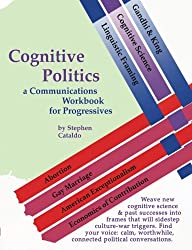Have you given up on communication techniques to politically opposed voters? Don't bother with active listening, don't bother with framing, because it's hopeless?
The results of how the we handled Kavanaugh should change your mind.
Instead of blocking Kavanaugh, this fight seems to have roused Republican voters who may have stayed home in November:
Poll: Amid Kavanaugh Confirmation Battle, Democratic Enthusiasm Edge Evaporates
How do you think that happened? Why and how were we outmaneuvered on an issue that initially looked like it might break the GOP coalition apart?
All those techniques like active listening, strongman arguments, and asking questions — the left has mostly given up on those techniques, arguing that they don't change voter's minds. We don't use them, we don't try to engage when Republicans try to frame an issue with "believe evidence" or that the Democrats are out to get Kavanaugh no matter what. We let the facts speak for themselves, despite decades of experience that facts only speak within stories.

Early Post-Mortem on Kavanaugh: Unframed Attacks by the Left
This week, we hear this over and over now: "Well, Kavanaugh lied, that should be disqualifying." What does that imply? That implies that the worst thing we have about him is lying under oath. Forget the sexual assault — we have, we've moved on to lying. This really is us being out to get Kavanaugh, looking for another reason. That is the left's frame: Kavanaugh sucks, we'll get him on something.
What is the Republicans frame? That's easy: you can't trust Democrats.
Some things the Democrats and allies did wrong:
We needed to define how Kavanaugh could be found not-smeared by the accusation. What did we want? When would it be enough? Without having that exit, it seemed, and in some ways was, unfair to Kavanaugh. If 2% of these accusations are false, what did we want Kavanaugh to do to prove he was in fact in that 2%? Without that, we seemed to be (in some ways were) entrapping Kavanaugh. Leading senators should have gotten together and made clear demands, with a promise to back off if conditions and evidence were both met. Without that, we lose many voters we don't need to lose, and fail to set a good precedent of how sexual assault accusations should be handled.
We needed to ask for what we wanted.
We need to pick one or two or maybe three disqualifying points, and build everything around them. We've accused him of sexual assault, and have not held back when weak and fuzzy accusations come in. Dr Ford's sounds serious; some of the follow-up, it has not been my impression that it is consistently on-target, serious and solid. We should have been saying to wait — we should have made sure the whole country saw us say "wait, listen carefully, just like we have with Dr Ford, don't judge so quickly" — making it clear we believe Dr Ford after hearing her testimony, after looking at what evidence we have, and the rest has to wait. Show that we have lines.
A few seconds thought on possible Democratic catch-phrases with appropriate frames:
"Believe her long enough to really investigate." #believe-her-investigate
"Why are you afraid to investigate."
These frames, with the underlying frame of Republican unwillingness to trust women long enough to even listen. If our frame is an unshakeable "believe women," we have a minority of voters. A looser version, designed to help people understand why we believe what we believe rather than present our allegiances, could have moved the country forward on both improving how we deal with sexual assault and on dumping Trump.
